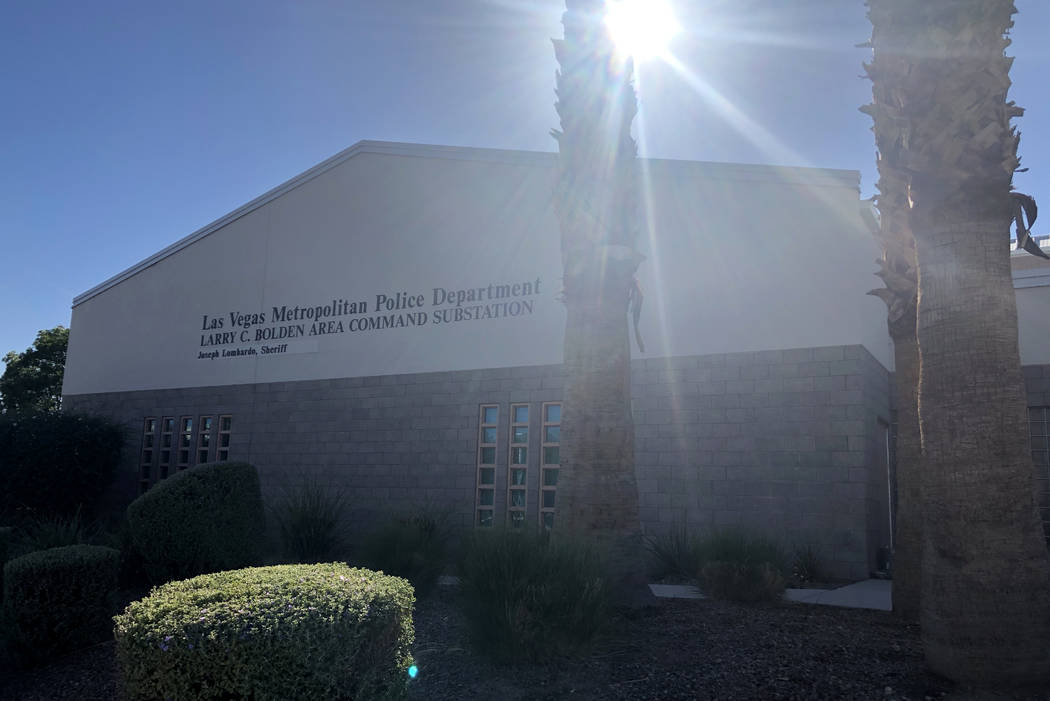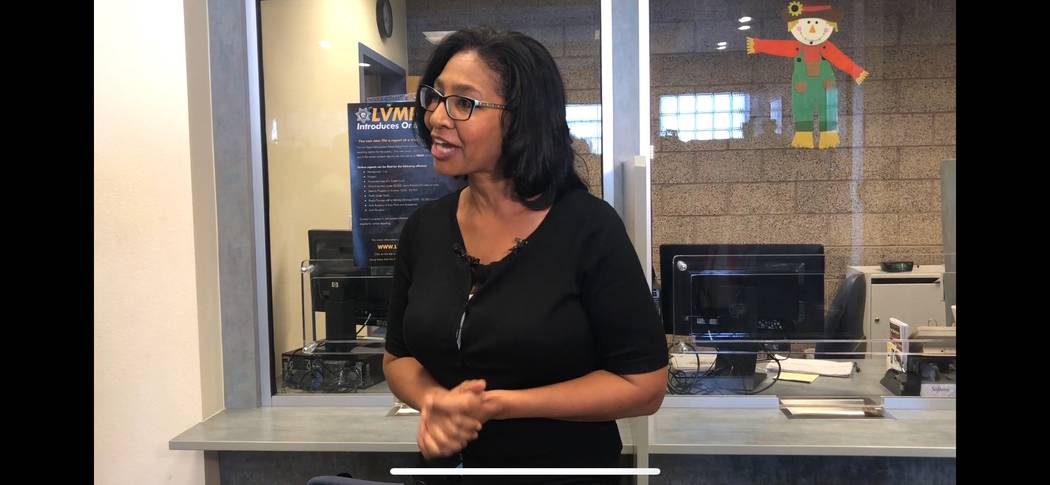New bill may create longer waits at Las Vegas police headquarters
Days before a Nevada bill changing the sex offender registry goes into effect, the Metropolitan Police Department suggested ways to avoid anticipated large crowds at Las Vegas police headquarters.
People who need to file or request police reports may do so at any of Metro’s 10 substations, said Lisa Hank, director of Metro’s Police Records and Fingerprint Bureau. That way people can avoid crowds and longer wait times potentially caused by Assembly Bill 579, which takes effect on Oct. 1. The bill requires sex offenders to report to police and be fingerprinted more frequently at Metro’s headquarters, located at 400 S. Martin L. King Blvd.
“We will have more volume at our headquarters,” Hank said at a press conference Thursday. “Because of the way they tier, they will be checking in more frequently, which will increase the volume.”
On an average day, about 550 people visit Metro headquarters, Hank said. That number is expected to triple when the bill goes into effect as fingerprinting services can only be performed at headquarters. Conceal-carry permits and work card services also can only be performed at headquarters.
Hank said she didn’t know what headquarters’ volume will look like in the long term.
“We don’t know what this impact is really going to look like at this point in time,” she said, adding that Metro will “continue to evaluate” whether more employees will be needed.
The bill will change the three-level tier system of Nevada’s sex offender registration to reflect the offender’s crimes and age of the victim, regardless of circumstances. The tier system used to reflect the risk of an offender and the likelihood they would re-offend, according to the Nevada Department of Public Safety.
The frequency offenders need to report to police will change with the new tier system. Offenders were previously only required to report and be fingerprinted once a year.
First-tier offenders still will be required to report once a year for 15 years, but second-tier offenders now will have to report twice a year for 25 years, and third-tier offenders will have to report four times a year for their lifetime, Hank said.
People seeking to avoid crowds the bill is likely to create also may file certain crime reports and request reports online at lvmpd.com.
The bill was initially approved by the Nevada Assembly in 2007 to comply with the federal Adam Walsh Child Protection and Safety Act, but its application was delayed for years through legal challenges. An amended lawsuit filed in June 2016 argued the bill is too vague and overly broad, and will result in thousands of offenders who used to be classified under tier one to be reclassified under tier two or three, making their information available online.
Tier-three and tier-two offenders include those whose victims were children. The bill applies to offenses dating to 1956.
The state Supreme Court recently lifted the enforcement block, causing the bill to take effect Oct. 1, according to The Associated Press.
Contact Katelyn Newberg at knewberg@reviewjournal.com or 702-383-0240. Follow @k_newberg on Twitter.
























